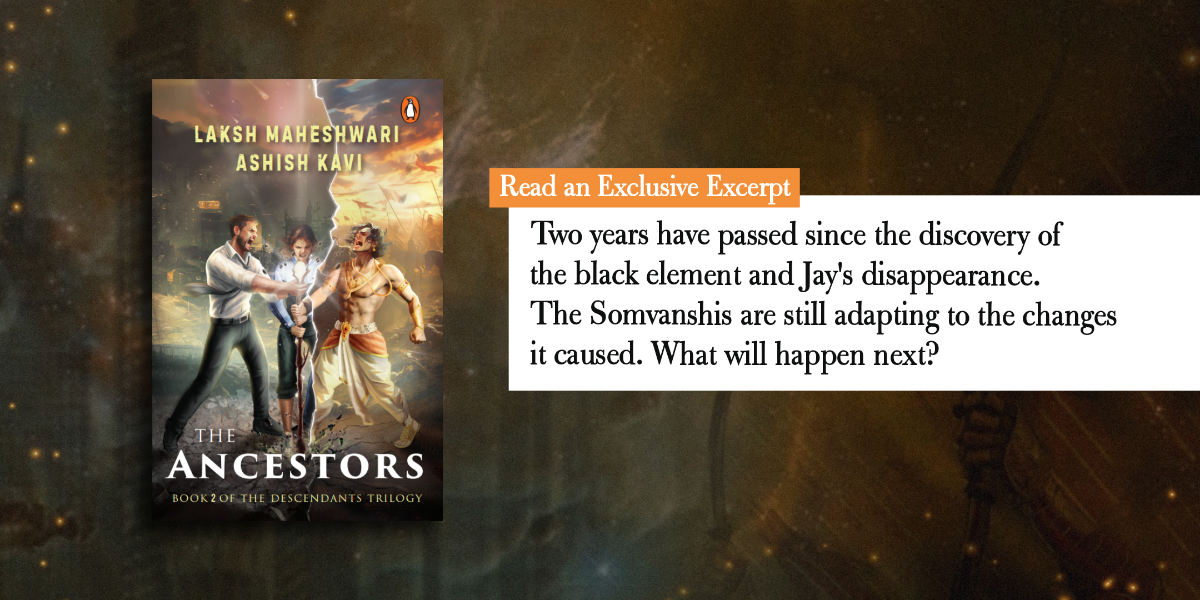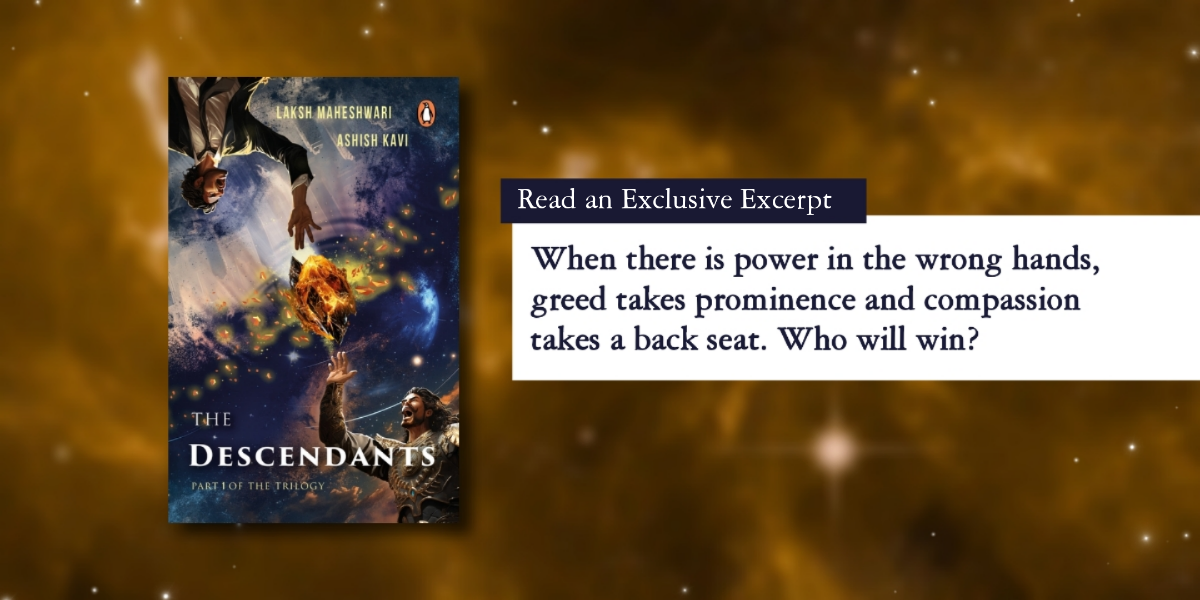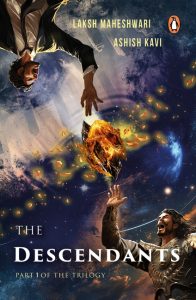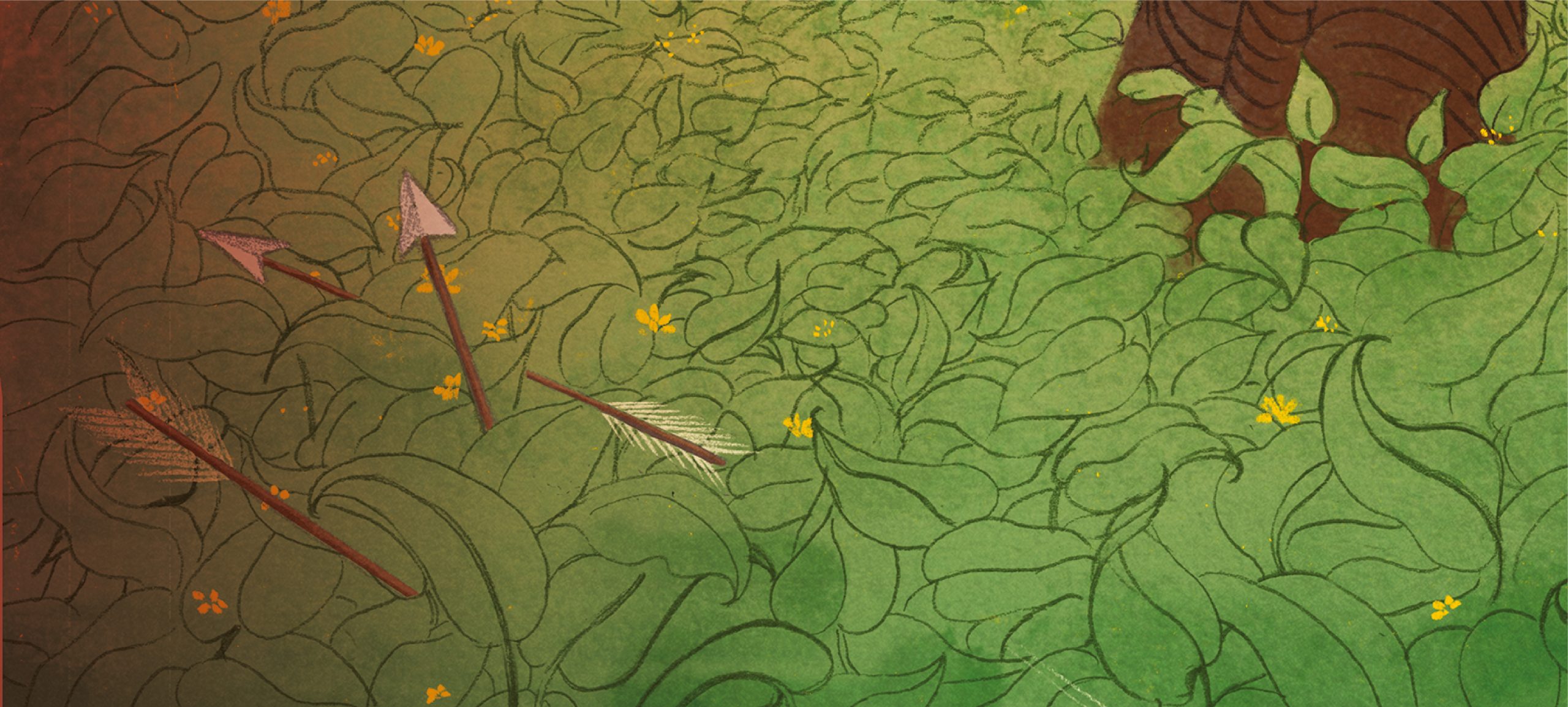Experience the exciting world of The Ancestors by Laksh Maheshwari and Ashish Kavi, where the Somvanshi family deals with the changes brought by a mysterious black element. Follow Karan and Shantanu Somvanshi as they uncover surprising secrets and face new challenges. In this exclusive excerpt, see how Karan takes control at Vantra and learns about the powerful but risky Super Soldier Project.
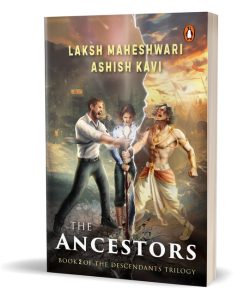
***
11 December 2020 | 1.15 p.m.
While some were still trying to get used to Jay’s disappearance, Karan displayed quite a healthy demeanour when it came to dealing with the loss of one of his oldest friends. Perhaps, it was their falling out or the speculation that he was the one responsible for Dhruv’s death. Perhaps, it was both. But now, Karan could claim what truly belonged to him, and that was his place in Vantra. That’s why he did not feel an ounce of guilt when he occupied Jay’s office and removed every single element that was a part of his personality. He discarded the prototypes of all the projects Jay had kept as souvenirs from the ventures he had built in his career. The wall of fame which once displayed Jay’s accolades was now decked with certificates, awards and degrees that belonged to Karan. Even the direction of the furniture in the room had been changed completely. The desk, which used to be diagonally aligned in the corner of the room, was now placed in the centre. And in that corner, Karan now sat on his white mat, deep in meditation. While his body remained still as a statue, his closed eyelids fluttered ever so slightly as his trance took him places he could hardly recognize.
In front of him was a panel of six army generals occupying a round table, discussing a highly confidential matter—the Super Soldier Project.
One of the older generals spoke. ‘By the end of the vote,it appears that the majority—that is, the four of us—is against investing in the Super Soldier Project on the grounds that it has already failed the previous test, thus making it completely unreliable.’
A younger general, sitting at the other end of the table, said, ‘I believe we must give another chance to this collaboration, because Vantra Technologies is interested in taking it over. The Vantra CEO, Mr Karan, would be leading it and Major Devansh will be supporting it.’ He then whipped out a file and turned to the page that listed the key characteristics of the super soldier.
a. Regenerating dead soldiers in the golden hour.
b. Soldiers will be controlled centrally by an AI that can access their location, physical movements and brain activity.
c. The AI will be connected to them by a strap on their neck.
d. This will grant them high endurance, healing power and flight, and multiply their speed and strength.
Upon reading these points, one of the generals who had already voted against the project, said, ‘I believe that this is still too irrelevant for the nation. Moreover, the fact that it’s headed by Major Devansh’s father’s company would paint the army as capitalist and merely trying to accumulate profits.’
One of the two generals who were in favour of the super soldier countered, ‘Let’s not forget that Vantra has been nothing but respectful towards the defence forces and they have gifted the nation with some of the best technologies. With their intent, I don’t think there would be any questions on the army’s character.’
The entire room erupted in incomprehensible arguments. After a short while, when everyone refused to quiet themselves, the general sitting at the head of the table yelled, ‘Gentlemen! Please!’ Everyone settled down instantly, giving apologetic looks to the general. ‘We must definitely look at every aspect of this deal before arriving at a decision. However, the most significant factor is that even if we choose to invest, would Vantra be able to succeed in thisproject which has been a failure in the past?’
Silence engulfed the room as the generals exchanged thoughtful glances. A distant and impatient tapping was the only sound that remained. Karan tried to look around the room to see where it was coming from and what it meant. Slowly, it all started to dissolve as Karan’s trance became weaker. He returned to the darkness behind his closed eyes. When he opened them, he saw Devansh standing in front of him, engrossed in a book that was kept on Karan’s desk, tapping his foot on the ground.
‘The army is sceptical,’ Karan said and Devansh turned to him.
‘What?’
‘We need to pick up the pace, the army is in two minds,’
Karan said, immediately getting up from the mat and opening his laptop on the desk.
Oh, don’t you worry about that. I just got back from the training sessions. It’s far more optimized now. They’ll be blown away.’ Devansh’s voice had conviction, but Karan was still concerned.
Before Karan could say anything else, one of the super soldiers walked into the office on cue. Karan looked at Devansh, who gestured to him to go ahead and test him out. Karan walked towards the super soldier and said, ‘D, activate SS1.’
***
Get your copy of The Ancestors by Laksh Maheshwari and Ashish Kavi on Amazon or wherever books are sold.







